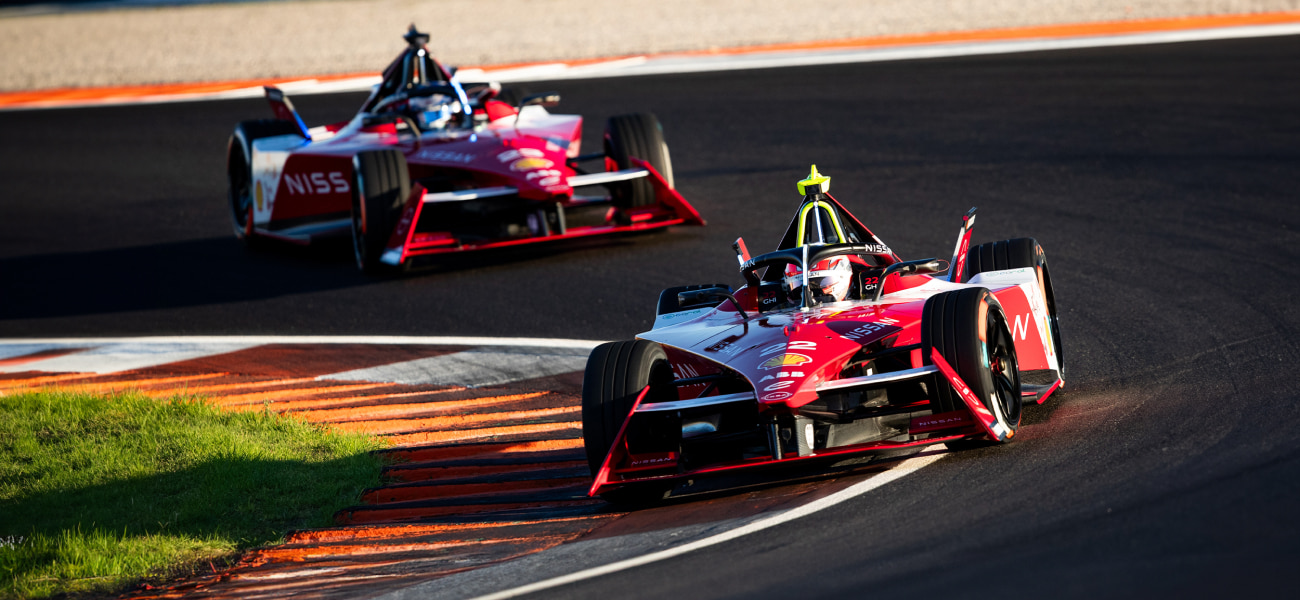"Imagine this scenario," says Dr. Matthew Walker, a renowned sleep expert and professor of neuroscience and psychology at the University of California, Berkeley.
"Two taxis arrive. One driver has a 30% higher likelihood of getting into a crash due to being sleep-deprived. Which would you choose? The answer is obvious, but that's the position we put ourselves in when we neglect our sleep."
Walker and Nissan UX Innovation senior manager Dr. Lucian Gheorghe, who leads Nissan's Brain to Performance program, are collaborating on analyzing drowsy driving and finding ways to help people get a better night's sleep.
Why lack of sleep is dangerous
According to the National Sleep Foundation, drowsy drivers are involved in around 100,000 crashes per year in the United States, resulting in an estimated 71,000 injuries and over $12.5 million in damages.*1
To expand on his taxi metaphor, Walker references an AAA Foundation for Traffic Safety study*2 revealing a connection between sleep hours and crash risk. Compared to drivers who slept at least seven hours in the past 24 hours, drivers who reported they had slept:
• 6-7 hours had a 1.3 times greater crash rate
• 5-6 hours had a 1.9 times greater crash rate
• 4-5 hours had a 4.3 times greater crash rate
• Less than four hours had an 11.5 times greater crash rate
A solution is within everyone's grasp.
"Sleep is probably the greatest legal performance enhancer not enough people are using," says Walker.
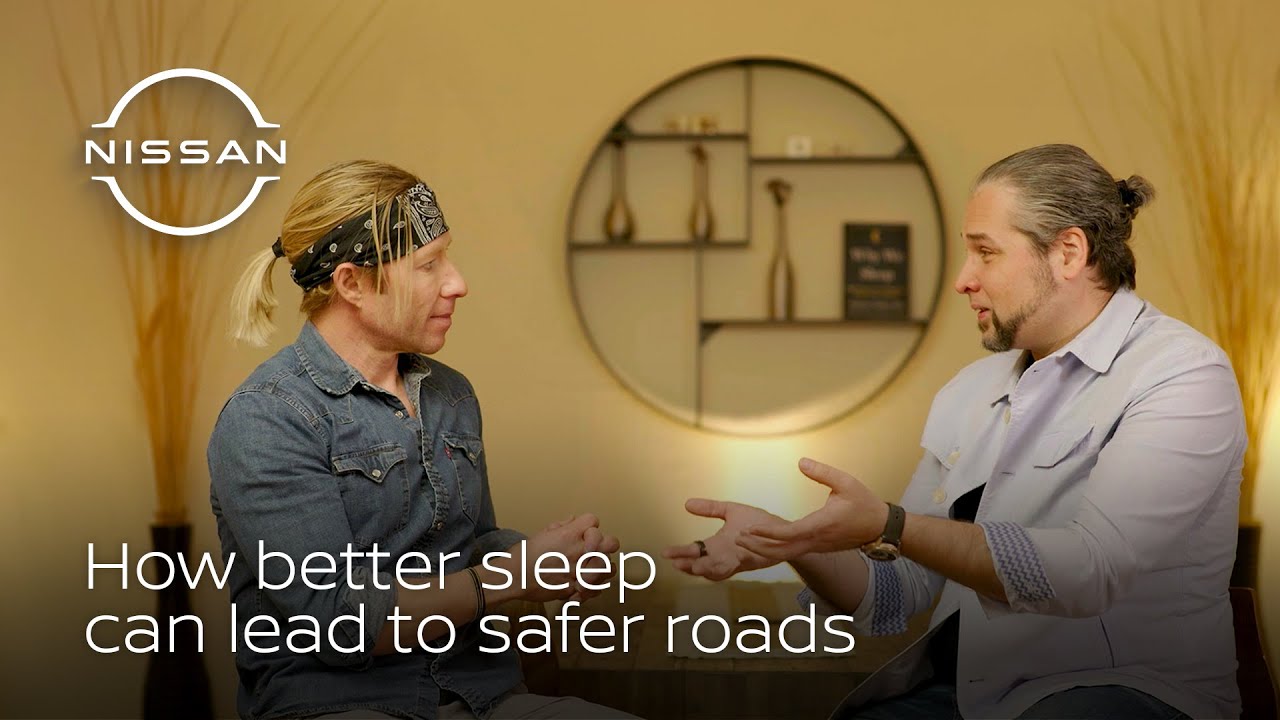
Keys to better sleep
Walker recommends healthy adults try to sleep seven to nine hours a night and says consistency is key.
"If I was going to offer you one suggestion for improved sleep, it is regularity," said Walker. "By going to bed and waking up at the same time, you will anchor your sleep and improve the quantity and the quality of that sleep."
Here are additional things you can do:
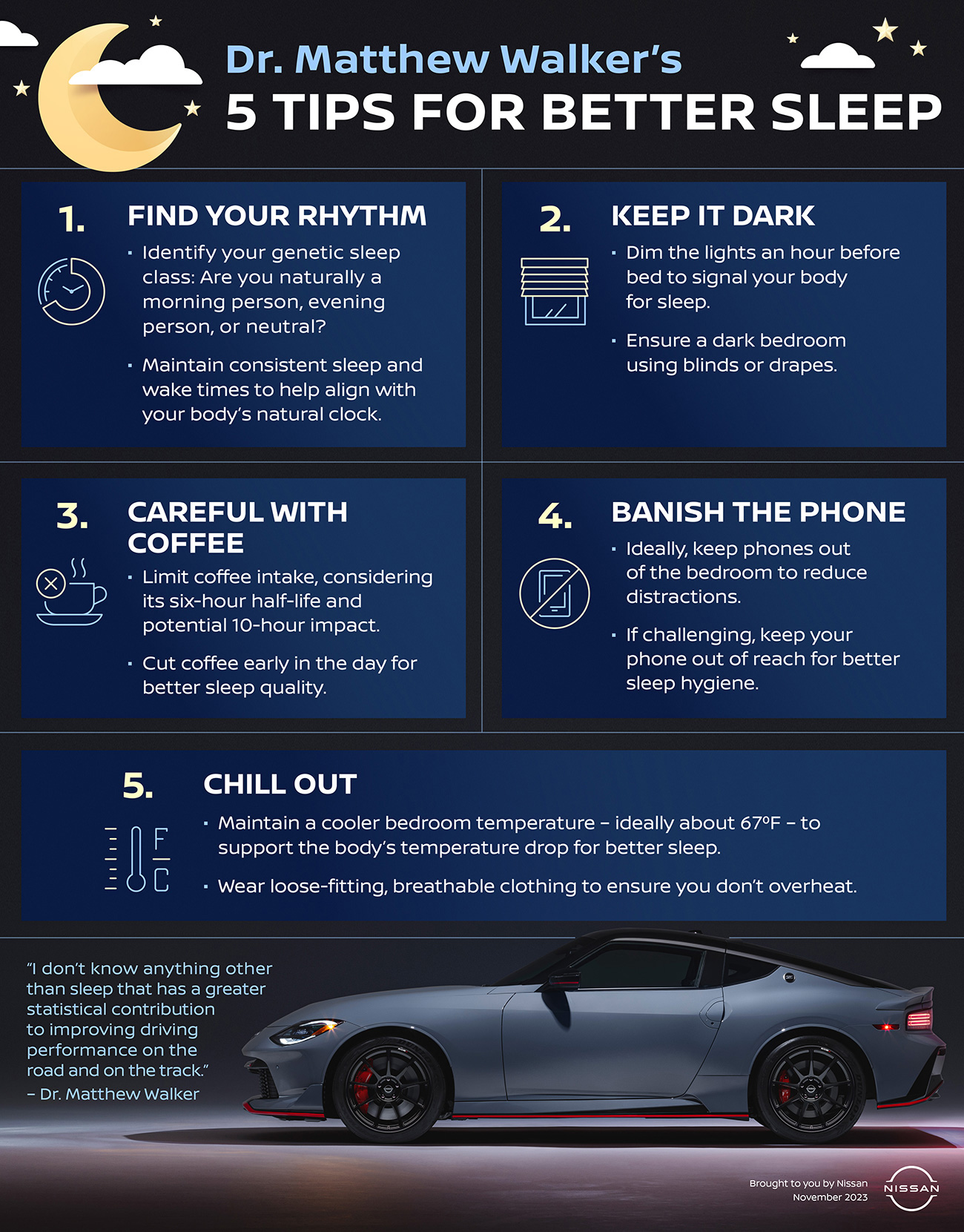
Nissan's brain and performance research
Collaborating with the Nissan Formula E team and non-professional drivers, Nissan's Brain to Performance program is using an innovative method to improve drivers' focus, reaction time and decision-making ability through targeted brain stimulation.
"If I can find a method to make very good drivers a tiny bit better, then I've got a good chance to help average drivers become better too," said Gheorghe.
The program has shown impressive results, with participants performing tasks 50% faster and learning racing circuits 50% quicker than a control group.
"There's a clear analogy between muscle changes and brain structure changes," says Gheorghe. "Perform the same task time and again, and certain paths develop in our brains."

Consistency is the key, resonating in both performance training during the day and when the time to sleep arrives at night.
"Regularity will feed your brain those signals of consistency," says Walker. "Brains will respond by producing the greatest quantity and quality of sleep."
Results showed that participants in the Brain to Performance program slept better. "They performed better because they could concentrate for longer periods of time," says Gheorghe.
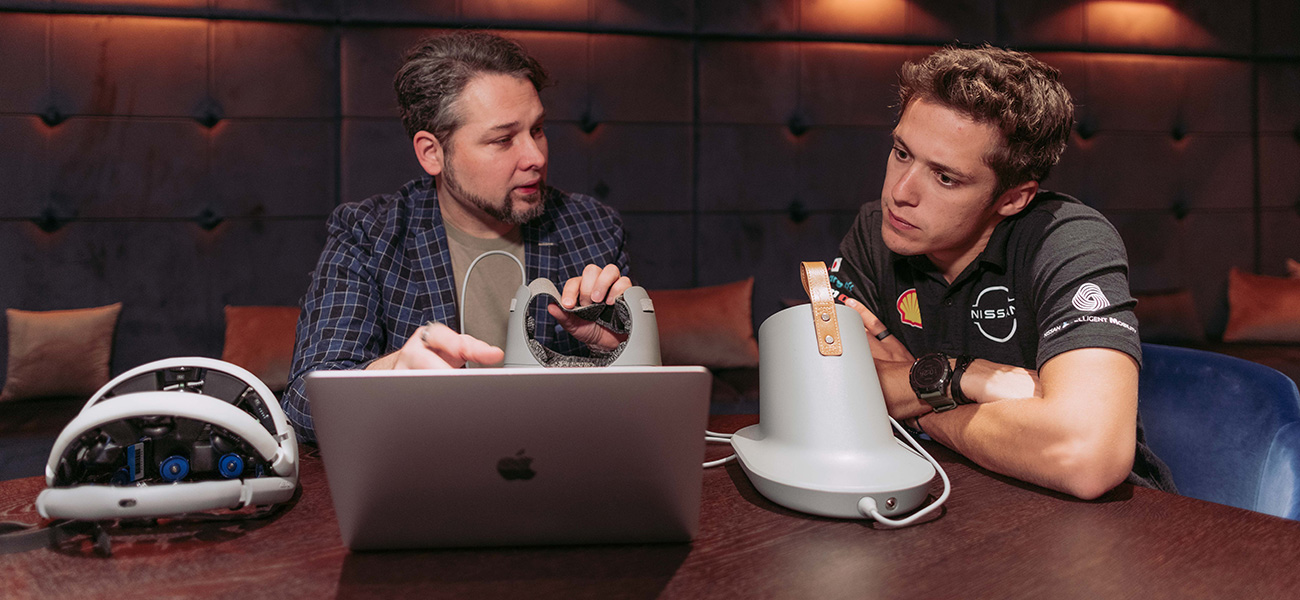
Nissan is conducting groundbreaking research in its innovative Brain to Performance program led by Dr. Lucian Gheorghe, shown here working with Formula E driver Sacha Fenestraz.
A top priority of this research is improving drivers' cognitive performance. Gheorghe envisions Nissan providing driver training in the future to help improve road safety.
"I wouldn't be surprised if in a few years you come to the Nissan dealership to have your car checked and instead of reading a magazine while you wait you take part in a highly accelerated brain-training program," says Gheorghe. "Then you go home with a better car, as a better driver, and you sleep better at night — all of which can combine to create safer roads."
Both researchers agree the value of a good night's rest can't be overstated when it comes to enhancing driver performance and ensuring safer roads.
"Sleep is not a cost," says Walker. "It's an investment."
Time for a break?
One of the most important tech features on Nissan models worldwide is Intelligent Driver Alertness (I-DA). *3 It helps detect drowsy and inattentive driving and reminds drivers that it may be time for a break.
When drivers are fatigued or their attention is reduced, they perform corrective steering more frequently than usual. When I-DA detects that, an amber coffee cup symbol appears on the dash together with an audible chime, prompting them to take a break.
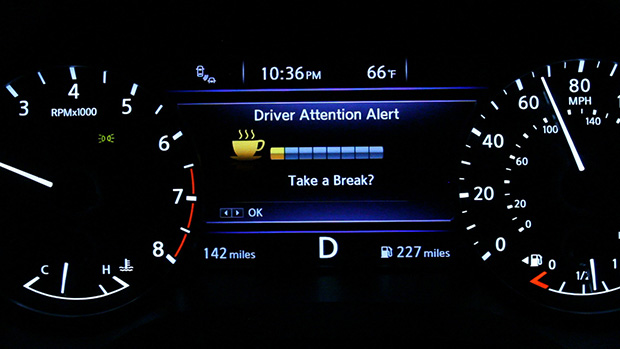
In Japan, once two continuous hours have passed on a navigated route the system reminds drivers to take a break.
- thensf.org
- aaafoundation.org
- It's the driver's responsibility to remain alert at all times. Intelligent Driver Alertness only serves as a warning of potential lack of attention or drowsiness. It does not detect and provide an alert in every situation. See your owner's manual for details.



